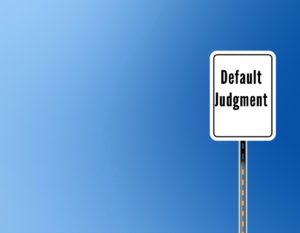By:Â Robert J. Nahoum
Here in New York, it is an all too common occurrence that you head to the ATM for some cash or break out your debit card to swipe for the groceries and embarrassingly learn that your bank account has been frozen. “How can this have happened? I was never even sued!†Turns out, you were sued by a debt collector; you didn’t answer the lawsuit, they got a default judgment and froze your account. The worst part is, all of this happened and you didn’t even know about it. Why didn’t you know you were sued? The answer is probably “sewer serviceâ€.
New York laws require that when a debt collection lawsuit is filed against you for things like old credit card debts, cell phone bills or even doctors’ bills, a process server has to deliver the lawsuit to you or someone at your home. The problem is, more often than not, this service never happens. The process server signs an affidavit saying that he delivered the papers to you (usually by the “nail and mail†method where they supposedly post the papers to the door of your home and then mail you a copy). In reality, the process server probably never delivered the papers to you at all; instead, he or she threw them down the “sewerâ€. Sewer service is unfortunately very common in the five boroughs of New York City and here in Rockland and Westchester Counties.
A debt collector’s bread and butter are default judgments. Make no mistake; they want to get that judgment with as little pushback and resistance as possible. The fastest way to a default judgment is when you don’t answer the complaint. If you are unaware that you have been served, the debt collector can have a default judgment entered against in less than 60 days. For this reason, it is no surprise that between sixty and ninety-five percent of all consumer debt collection lawsuits are estimated to result in default judgments.
New York’s judgment enforcement laws make judgment enforcement pretty easy for the debt collector and provide a number of enforcement devices at their disposal. In fact, many of the most powerful of these devices don’t even require the debt collector to go before a judge including:
• Freezing (restraining) a bank account;
• Wage garnishment;
• Auctioning your personal property; and
• Subpoenaing your friends, family and co-workers;
So what do you do if you discover that a default judgment has been entered against you? Fortunately, New York courts have recognized that default judgments are highly questionable particularly due to the pervasiveness of sewer service. For this reason, it is pretty easy to have the default judgment reversed or “vacated†as it is called in the law. To do so, you go to the courthouse and file an “order to show cause†along with a sworn affidavit from you (the court clerks have forms). Your affidavit must swear to two points, (1) that you have a reasonable excuse for your default (like you were never served with the papers); and (2) that you have a defense to the case (like you don’t owe all or part of the debt or that you have never heard of the plaintiff). You deliver the papers to the attorney for the debt collector and show up in court on the designated day where more times than not, your order to show cause will be granted and the default judgment will be vacated.
Beware, after the default judgment is vacated, that debt collector is still going to try and collect that debt or reach a settlement. Hiring a qualified and competent New York attorney can help to make certain that you get the best deal possible and that the debt collector is not taking advantage of you.
Contact The Law Offices of Robert J. Nahoum, P.C today to see if you have a case against a debt collector (845) 232-0202;
The Law Offices of
Robert J. Nahoum, P.C.
99 Main Street, Suite 311
Nyack, NY 10960-3109
Ph: (845) 232-0202
Fax: (888) 450-8640
Email: RJN@nahoumlaw.com
Web: www.NahoumLaw.com
Web: www.FDCPAAttorney.net

